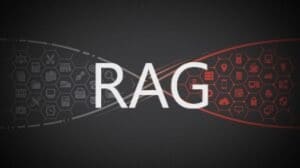Unveiling Pros and Cons of Popular Retrieval-Augmented Generation Techniques
Retrieval-augmented generation (RAG), the game-changer in AI, significantly boosts the results of large language models (LLMs). It cleverly utilizes a vector database of documents to enrich prompts, aiming to deliver higher-quality responses. Despite the evident advantages, it’s equally important to delve into the associated challenges.
Three popular RAG techniques are self-query, parent retrieval, and retrieval with score. Each technique presents a unique blend of pros and cons.
Self-query efficiently accesses a model’s training data, negating the need for an external database. This cost-efficacy, however, gives rise to potential biases. The model may turn a blind eye to new information and possibly retrieve irrelevant data if the prompt is unclear or ambiguous.
In contrast, parent retrieval exposes the model to a broader data range, bringing about enhanced performance. Still, we should be aware that improper parent datasets might provide irrelevant information, and the need for an external database can lead to increased computational demands.
Finally, retrieval with score allows the model to score database documents based on relevancy. Though promising improved results, this method also necessitates a well-structured database, which increases computational load. Notably, a poorly defined scoring function or an ill-suited database can yield irrelevant documents.
Exploring Pinecone Hybrid Search
Pushing the boundaries of Retrieval-Augmented Generation comes Pinecone Hybrid Search. By fusing semantic and keyword searches into one query, more relevant results can be achieved. The sparse-dense index conducts the search across different modalities, allowing versatility. The balance of sparse vs. dense can be manipulated via the alpha parameter, offering customization.
There are both compelling advantages and downsides to consider with Pinecone Hybrid Search. Its combined search, adjustable alpha parameter, speed, and scalability make it a favorable option. But like its counterparts, an external database’s computational cost and the potential for irrelevant retrievals should not be overlooked.
Pinecone Hybrid Search Applications
Astonishingly, Pinecone Hybrid Search finds its place in various sectors. In e-commerce, it can enhance product recommendations and search results. In healthcare, browsing through vast patient data to improve diagnosis becomes plausible. Even finance can utilize it for better fraud detection by searching extensive financial data.
In conclusion, while challenges exist in Retrieval-Augmented Generation and techniques such as Pinecone Hybrid Search, their advancements are undeniably revolutionizing how we approach AI and data analysis. As we at Positive continually explore these frontiers, our mission is to drive these advancements forward and make them accessible for everyday business use.
We at Positive understand the need to educate the public and bring the technology closer for everyday business use. We are determined to stay at the front of the field and to pierce all frontiers that are in front of us in developing useful AI-aided Assistants for business use.
If you want to know more about current AI issues check here.
Share



